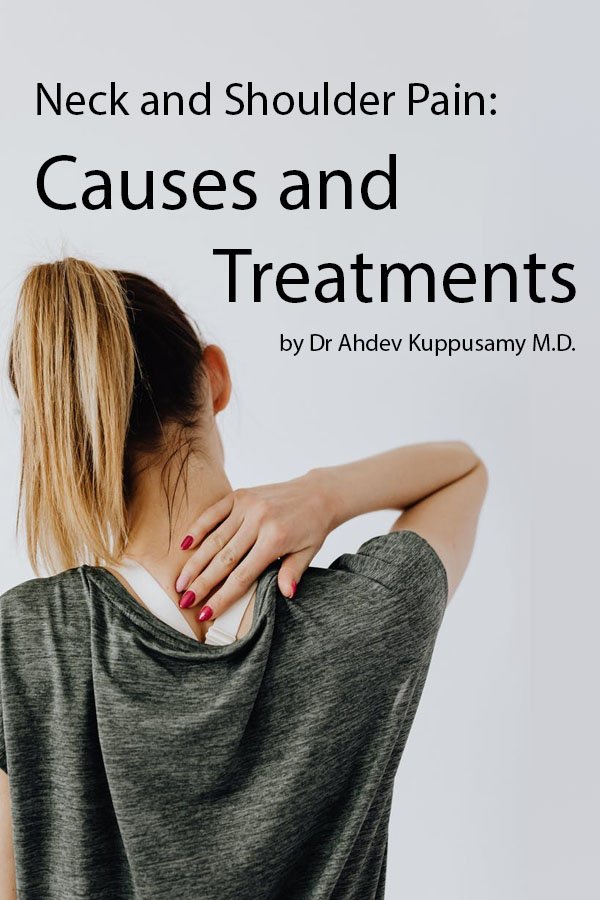Issues like overstretching, strain, ligament tearing can cause simultaneous neck & shoulder pain. Over time, it leads to significant distress for patients and leaves a negative impact on their way of life.
Besides consistent outpatient visits, patients face a tremendous burden both emotionally and financially. Generally, neck & shoulder pain is caused by different reasons. Surprisingly, the ways to treat them are the same.
The common symptoms of neck pain are the inability to move the head, tightness in tissues, spasms, and mild to severe headaches. The worst thing about this condition is it grows when your head is still. For example- driving, working on a laptop, etc.
Shoulder pain can arise due to problems in the shoulder joint, ligaments, or other surrounding muscles. Note that neck & shoulder pain, in a few cases, is the symptom of stroke or a heart attack. These are some of the most severe medical emergencies that need immediate assistance. In some cases, gallstones or cancer can result in neck and shoulder pain.

What Causes Neck & Shoulder Pain?
Injured soft tissues in the neck and shoulder are the primary cause of these ailments. Also, problematic tendons, ligaments, and muscles in these body parts are responsible for such pain.
In most cases, they occur due to overexertion, wrong walking, sitting, & sleeping posture, or sporting activity.
Refer to the following table to understand the causes of neck and shoulder pain.
| Neck Pain | Shoulder Pain |
| Rheumatoid Arthritis | Unstable Shoulder Joint |
| Cancer | Overexertions Strain |
| Muscle Tension & Strains | Frozen Shoulder |
| Nerve Compression | Brachial Plexus Injury. |
| Worn Joints | Cervical Radiculopathy |
| Soft Tissue Injuries | Overexertions Strain |
| Meningitis | Whiplash |
Apart from the causes mentioned above, there are a few other reasons behind the neck & shoulder pain. Let us discuss them one by one.
Rotator cuff injury
The tendons that help to place the upper arm properly in the shoulder blade are called rotator cuffs. Sometimes, even a small accident or a continuous arm movement can injure the rotator cuff.
Furthermore, when the body’s natural ability to circulate blood reduces, bone spurs are created at the shoulder joint, and this leads to the torn rotator cuff (this generally happens in older people).
Intense workouts such as weightlifting can cause a sudden tear. It not only results in terrible shoulder pain but also weakens your upper arm within no time.
Slipped Disc or Herniated Disc
Discs may damage due to shrinkage in cervical discs. This mainly happens when vertebrae move close to each other.
The condition, commonly known as slipped disc, occurs in these cases and the following are its symptoms:
- Muscle stiffness;
- Numbness;
- Pain & burning sensation;
Angina Pectoris
The amount of oxygen reaching the heart decreases due to contracting coronary arteries. This causes ache in the neck, shoulder, chest, and jaw. This condition is called Angina Pectoris or Stable Angina.
Generally, the chest is the primary source of pain in this condition that spreads across other parts like shoulder, neck, jaw, and back. It is suggested to get this treated at the earliest.
Fracture in Collarbone
Scientifically known as the clavicle, the collarbone resides at the top of the chest. It goes through the shoulders and rib cage.
If you fall on your stretched arm, the collarbone may get severely damaged. You suffer from sagging shoulders, severe pain, swelling, and inability to stretch the hand in response.
Head & Neck Cancer
This type of cancer causes intense pain in the neck and shoulder area. Excessive alcohol and tobacco consumption is the primary reason in nearly 75% of patients suffering from this disease.
Heart Attacks or Strokes
Along with chest and arm aches, pain in the neck and shoulder is also a particular heart attack and stroke symptom.
Whiplash
Rapid acceleration or deceleration in the neck and shoulder can hurt muscles and ligaments. Such issues mostly occur in accidents while driving, running, etc.
How Can Your Prevent Neck and Shoulder Pain?
The simplest way to prevent neck and shoulder pain is to avoid stressing them. But how do you do that? It’s easy-all you have to do is correct your posture while walking, sitting, and sleeping.
Steps to Practice Correct Posture
- Stand up against the wall (your back should be touching the wall). Align the hips, shoulder, and heels properly;
- Move the palms up and down for a few times. Make sure your palms are moving upwards as much as possible;
- Continue this activity for up to 5 minutes and then walk. That’s it!
Workout Regularly
When you exercise and stretch daily, it leaves relaxing impacts on your neck and shoulder. Try to perform exercises that are great for your upper body. You can consult with your doctor to know more about the workout routine. It’s essential to carry out such stretches and exercises in the right way. Otherwise, it may lead to stress on muscles.
Change Workplace Habits
You mostly carry out similar activities at the workplace, which may put stress on your neck and shoulder. We understand that it’s quite difficult to avoid such actions; however, you can certainly reduce some stress that is caused due to them. Follow the given steps:
- Use the headphones to talk on the phone. This prevents stress on your neck.
- Use a movable chair.
- Timely breaks are recommended when working. It keeps your body moving and prevents it from excessive stress.
- Move around the place & avoid sitting at one place for a long time. The ideal way to do this is to move around every half an hour.

What Are the Medical Treatments for Shoulder & Neck Pain?
Pinpointing the root cause is the essential factor in determining the appropriate way to treat the shoulder and neck pain medically.
For minor causes such as overexertion, strains, sprains, and bad posture, body massages, specific home remedies, and physical therapy can be useful.
The pain caused by a heart attack, stroke, and other severe health issues require immediate medical assistance.
If the pain is due to fractures and torn tissues, it’s better to see the doctor as soon as possible. Doctors will examine your body and run a check on your medical history. Be ready to tell all the information about the symptoms.
Talk to them about the recent accidents and injuries. Also, if you are on any medication, let your doctors know that. You may have to go through some of the tests mentioned below:
- Blood tests;
- CAT scan;
- Discography;
- Electromyography (EMG);
- Nerve Conduction Studies (NCS);
- MRI;
- Selective Nerve Root Block;
- Myelogram;
- X Rays;
Based on the reports, you may undergo medical treatment or therapies like:
- Exercise, stretching;
- Physical therapy;
- Acupuncture;
- Surgery (if required);
- Corticosteroid injections;
- Course of antibiotics;
- Muscle relaxants;
- Body massages.
Make sure you visit reputed and licensed pain experts to treat your neck & shoulder pain effectively.
Final Words
Most people suffering from neck and shoulder pain will find the problem will settle with time. With proper coordination with your medical experts and effective physical therapies, you can achieve the best possible results.
Sometimes, the pain vanishes on its own, and sometimes it needs systematic stretching exercises to treat it. However, some emergency conditions need rapid medical treatment to avoid more significant problems.
You can avoid these ailments if you follow some necessary preventive measures such as correct sitting, walking, and sleeping postures, physical movement, stretching & strengthening exercises.
Author bio
Dr Ahdev Kuppusamy M.D. is currently serving as an anesthesiologist and interventional pain specialist at The Pain Experts of Arizona. His primary motto is to improve the lifestyle of his patients through the down-to-earth approach to medicine and superior treatment options.


